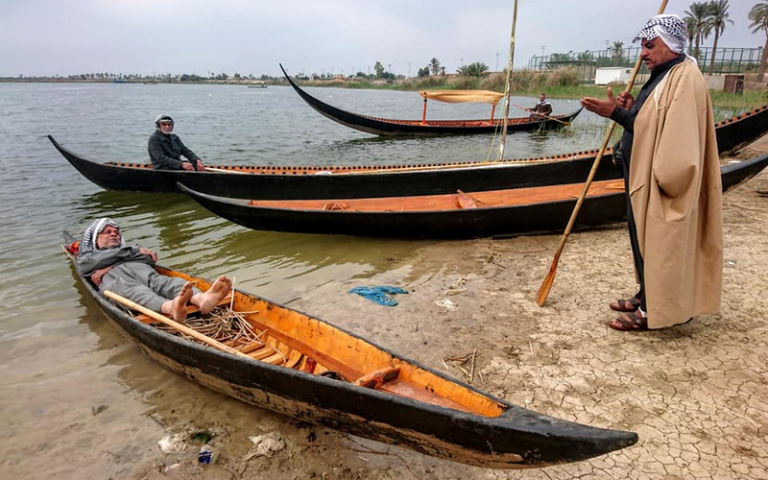Supporting a new vision for Iraq’s heritage and culture
A collaborative network including UCL historians is supporting a sustainable approach to heritage in post-conflict Iraq through locally-led research and advocacy that retells the story of Iraq's past.

7 October 2020
Photo Credit: Rashad Salim, Safina Projects
Mashouf (canoe), Basrah, Iraq.
The Nahrein Network has pioneered a new approach to research on heritage, history and the humanities in Iraq and its neighbours, driven by twin challenges of demographic change and systemic exclusion from international academia in a highly fragile post-conflict state.
“The whole region is suffering the effects of war, and many minority groups and young people feel marginalised,” explains Professor Eleanor Robson (UCL History), who leads the Nahrein Network.
The network includes experts at UCL, the Ashmolean Museum in Oxford, and Sulaimani Polytechnic University and Al-Qadisiyah universities in Iraq. Funded via the AHRC and Global Challenges Research Fund, the network is supporting a range of projects and collaborative research programmes.
This enables people across the region to use their ideas and expertise to reinterpret the region’s past as local history, and supports locally led interdisciplinary research that will have sustainable economic and social benefits.
To date, the network has supported 19 projects across Iraq, Turkey and Lebanon and run successful workshops on research skills across the region. It has also funded 15 scholarship placements in the UK. This multi-faceted approach has led to newly interpreted collections in libraries and museums, public lectures and cultural networks.
““The Nahrein Network has promoted a people-first strategy to building effective support for heritage in Iraq.”
One project, led by an Iraqi artist, examines the links between traditional boat building and ancient forms. The Thesiger’s Tarada project compares details of Iraq’s marsh canoes, gathered from oral histories and archive research, with archaeological data on similar boats from ancient times.
Events involving local boat builders, sheikhs and project partners such as Nature Iraq and Basra Museum, have brought history to life and led to a touring exhibition for Iraqi museums that explores the history of this ancient craft and supports its revival for use in local tourism.
“Since 2017, the Nahrein Network has promoted a people-first strategy to building effective support for heritage in Iraq and is advising policymakers in the Iraqi cultural sector,” explains Professor Robson. ”We are helping to decolonise histories of the ancient Middle East and supporting new ways to promote Iraq’s history.”
 Close
Close


